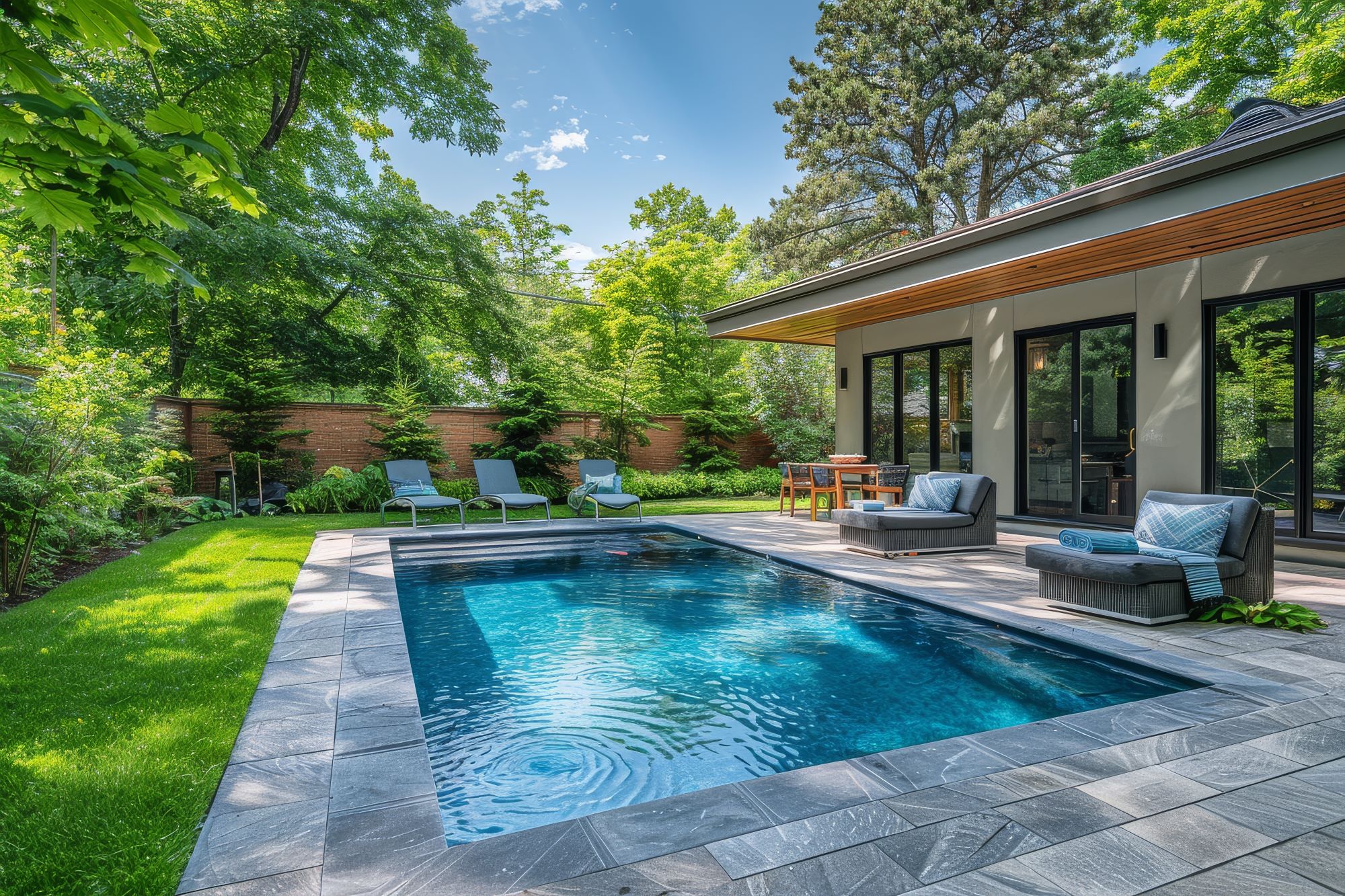Service professional Adam Morley and his team didn’t know why they couldn’t stay on top of the water quality in one of their pools.
“We were saying, ‘How are we having so much trouble keeping that water right? It’s not a tiny pool,’” recalls the vice president of Paradise Pool and Spa Service in Harbor City, Calif. “We were just struggling.”
It was a coincidence that they learned the pool was listed on a short-term rental website. “One of my route managers was on the site and said, ‘Hey, that’s one of the pools we do,’” he says.
If he knows a pool is being rented through a site such as Swimply, or sits on a short-term-rental property listed on a site like Airbnb, Morley has his terms. “We only knowingly take them on if they operate as a commercial pool — two to three times per week, [paying] any additional chemical expenses,” he says.
He explained this to the homeowner: “We said, ‘You have all these people coming in … you can’t service it once a week.’” With that, the relationship ended.
Walking the line between residential and commercial, these properties confound many pool companies, who don’t always know what codes to observe. Here, attorneys offer advice on how to safeguard end users and protect your company.
The conundrum
Observers have seen plenty of cases involving drownings on short-term rental properties. But given the lack of statistics, it isn’t known how many or how the rates would compare with other settings. In the last two years, attorney Michael Haggard has handled approximately six such cases.
He sees a pattern. “We have had several cases where it occurs within the first 24 hours of their stay,” says the managing partner of The Haggard Law Firm in Coral Gables, Fla.
Some renters have little experience around pools and aren’t familiar with safety measures. For residential pools, we count on homeowners to guide friends and family on safe usage. With commercial pools, we have signage and stepped up safety measures. But with short-term rentals, you have neither, says Steve Getzoff, who serves as outside national counsel for the Pool & Hot Tub Alliance, and a partner in New York-based Lester Schwab Katz & Dwyer.
It’s become enough of an issue that at least two states are considering legislation to address it — Oregon and Washington, says Haggard, who has been approached by officials in other states as well.
PHTA is considering whether to include the care of such pools in its standards, Getzoff says.
Proceed with caution
If a company doesn’t know the property is being used for short-term rentals, it likely could not be held liable for any incidents, these experts say. If you do know, you can take certain precautions.
You might consider addressing the issue in your service contracts. “I might put [something] in my contract saying that this property is not being rented” Getzoff says.
At least as important, service contracts should very clearly outline what the company is and is not responsible for, he adds. “It should say they’re not responsible for fencing, alarms, diving boards, anything structural or anything like that,” Getzoff says. “[Something like,] ‘We’re here to maintain the water on a weekly basis, to open and close the pool. We’re not responsible for X, Y and Z.’ With that, they should be protected because the company has the right disclaimers.”
Do not include broad promises in the contract. For instance, don’t promise your company will keep the water clean. Otherwise, if the pool is being rented without your knowledge, and clarity problems arise between calls, you could be held liable.
“Sign a contract to perform a service at a certain frequency and whatever the service includes,” Getzoff says. “It comes down to having the right limiting language on the service agreement.” Of course, run any such language past your attorney.
Builders might consider disclaimers as well, to protect themselves in case warranty issues come up from the higher usage these pools can undergo. “One of the things that I think a builder should consider is maybe a disclaimer saying that if this pool is used in a commercial manner, then all warranties are void,” Getzoff says.
Of course, if your jurisdiction classifies these properties as commercial, then they must comply with commercial codes. But Haggard recommends care even if short-term rentals are deemed residential.
Present the client with recommendations for how the pool should be treated, maintained and/or built to protect users and help ensure longevity, he says. “I would say, ‘If I were you, I’d build it like a commercial pool to protect myself,’” he says.
He suggests recommending measures such as depth markers, shepherd’s hooks, signage saying there’s no lifeguard on duty — even a defibrillator and phone. “It doesn’t mean the host is going to listen, but it’s a best practice,” he says.
If the homeowner chooses against your advice, have them sign a document saying as much. Haggard, who has represented many victims in pool-related lawsuits, sees this as the best way to avoid litigation, or be excused from a case quickly. “I would want to be able to say, ‘I told them to do X,Y and Z. They said no. Here’s the letter.’ I think that’s a great defense,” he says.
However, that doesn’t mean you should provide advice outside your scope of expertise. Keep any advice to the pool and its operation, recommends attorney Benjamin Ost.
“I recommend against giving advice that could be construed as legal advice,” says the attorney with Decatur, Ga.-based firm Dorough & Dorough. “If the owner says, ‘Do you think I should get it insured?’ I would only say, ‘You should talk to your broker about that.’”




